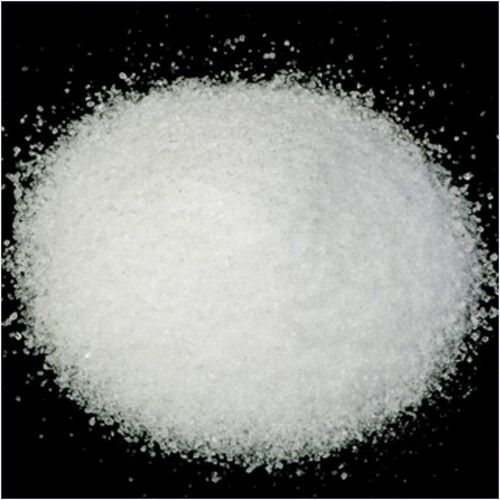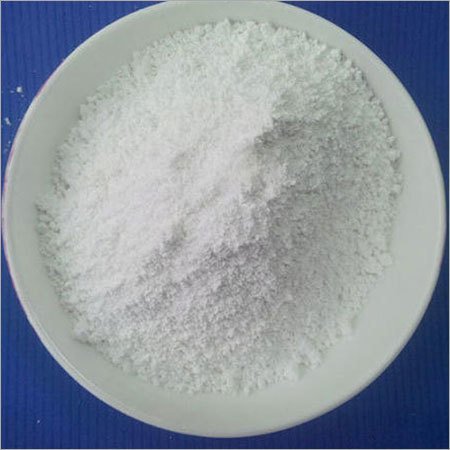Trusted company that deals in Quality-made products
Sodium Carbonate anhydrous LR
109 INR/Kilograms
Product Details:
- Storage Room Temperature
- CAS No 497-19-8
- Product Type Raw Material
- Purity Min. 99.5 %
- Solubility In Water
- Molecular Formula Na2CO3
- Application Pharmaceutical
- Click to View more
X
Sodium Carbonate anhydrous LR Price And Quantity
- 109 INR/Kilograms
- 25 Kilograms
Sodium Carbonate anhydrous LR Product Specifications
- Powder
- Na2CO3
- Pharmaceutical
- White Crystalline Powder or Granular Powder, Hygroscopic
- LR
- 28362090
- White Crystalline Powder or Granular Powder, Hygroscopic
- Na2CO3
- Room Temperature
- 497-19-8
- Raw Material
- Min. 99.5 %
- In Water
Sodium Carbonate anhydrous LR Trade Information
- Cheque
- 10 Kilograms Per Day
- 10 Days
- Yes
- Free samples are available
- HDPE Bag/ HDPE Drum/ Jar Packing
- Asia Australia Central America North America South America Eastern Europe Western Europe Middle East Africa
- All India
- FDA, GMP, GLP, ISO, FASSAI, KOSHER, HALAL
Product Description
Sodium carbonate anhydrous, also known as soda ash or washing soda, has several properties that are important for its various industrial and household applications.
Sodium Carbonate Anhydrous LR Properties:
1. Chemical Formula: Na2CO3
2. Molar Mass: Approximately 105.99 g/mol
3. Appearance: White, odorless powder
4. Density: The density of sodium carbonate anhydrous is around 2.54 g/cm3.
5. Solubility: Sodium carbonate anhydrous dissolves readily in water, forming a clear solution. This property makes it useful in various applications, such as cleaning and water treatment.
6. Hygroscopicity: Sodium carbonate anhydrous is hygroscopic, meaning it can absorb moisture from the air. This hygroscopic nature can affect its handling and storage properties.
7. pH: It is a basic compound and can act as a pH regulator. In water, it dissociates to form carbonate ions, which can help buffer against changes in pH.
8. Thermal Decomposition: When heated, sodium carbonate anhydrous undergoes thermal decomposition to produce carbon dioxide (CO2) and sodium oxide (Na2O).
Applications of Sodium Carbonate Anhydrous LR:
1. Cleaning: Used in household cleaning products, such as laundry detergents and dishwashing powders, due to its ability to soften water and enhance cleaning efficiency.
2. Water Treatment: Utilized in water treatment processes to adjust pH levels and soften water.
3. Chemical Industry: Acts as a raw material in the production of chemicals, including glass, paper, and certain detergents.
4. Food Industry: Employed as a pH regulator in the food industry, particularly in the production of certain food products.
5. pH Adjustment: Used to adjust the pH of solutions in various industrial processes.
Safety Considerations:
1. Sodium carbonate anhydrous can be irritating to the skin and eyes, so proper safety precautions, including the use of gloves and eye protection, are recommended when handling it.
2. Inhalation of the dust should be avoided, and it is advisable to work in well-ventilated areas.
Understanding these properties is crucial for using sodium carbonate anhydrous effectively in different applications while ensuring safety and proper handling.
Sodium Carbonate Anhydrous FAQ:
Q. What is sodium carbonate anhydrous?
Ans: Sodium carbonate anhydrous is a chemical compound with the formula Na2CO3. It is commonly known as soda ash or washing soda. The term "anhydrous" indicates that it is the dry, water-free form of sodium carbonate.
Q. What are the key properties of sodium carbonate anhydrous?
Ans: Sodium carbonate anhydrous is a white, odorless powder that is soluble in water. It is hygroscopic, meaning it can absorb moisture from the air. It has a molar mass of approximately 105.99 g/mol.
Q. What is the difference between sodium carbonate and sodium bicarbonate?
Ans: Sodium carbonate (Na2CO3) and sodium bicarbonate (NaHCO3) are both alkaline compounds, but they have different chemical compositions and uses. Sodium carbonate is a stronger alkaline compound and is often used in cleaning products, while sodium bicarbonate is a milder alkaline compound commonly used in baking.
Q. How is sodium carbonate anhydrous used in cleaning products?
Ans: Sodium carbonate anhydrous is used in laundry detergents and dishwashing powders due to its ability to soften water, enhance cleaning efficiency, and help remove stains.
Q. What is the role of sodium carbonate anhydrous in water treatment?
Ans: It is used in water treatment processes to adjust pH levels and soften water by precipitating calcium and magnesium ions, which can cause water hardness.
Q. Can sodium carbonate anhydrous be used in the food industry?
Ans: Yes, sodium carbonate is used in the food industry as a pH regulator. It is generally recognized as safe (GRAS) when used in accordance with good manufacturing practices.
Q. Is sodium carbonate anhydrous safe to handle?
Ans: While generally considered safe, sodium carbonate anhydrous can be irritating to the skin and eyes. Proper safety precautions, including the use of gloves and eye protection, are recommended when handling it. Inhalation of the dust should be avoided.
Q. What happens when sodium carbonate anhydrous is heated?
Ans: When heated, sodium carbonate anhydrous undergoes thermal decomposition, producing carbon dioxide (CO2) and sodium oxide (Na2O).
Q. Can sodium carbonate anhydrous be stored for a long time?
Ans: It is hygroscopic and can absorb moisture from the air, so proper storage in a dry environment is essential to prevent clumping and maintain its effectiveness.
Q. What are some industrial applications of sodium carbonate anhydrous?
Ans: It is used in the production of chemicals, including glass, paper, and certain detergents, as well as in various industrial processes where pH adjustment is required.
FAQs of Sodium Carbonate anhydrous LR:
Q: What is the purity of Sodium Carbonate anhydrous LR?
A: The purity of Sodium Carbonate anhydrous LR is minimum 99.5%.Q: What is the physical form of Sodium Carbonate anhydrous LR?
A: Sodium Carbonate anhydrous LR is in the form of white crystalline powder or granular powder.Q: What is the application of Sodium Carbonate anhydrous LR?
A: Sodium Carbonate anhydrous LR is commonly used in pharmaceutical applications.Q: What is the appearance of Sodium Carbonate anhydrous LR?
A: The appearance of Sodium Carbonate anhydrous LR is a white crystalline powder or granular powder, and it is hygroscopic.Q: What is the molecular formula of Sodium Carbonate anhydrous LR?
A: The molecular formula of Sodium Carbonate anhydrous LR is Na2CO3.Tell us about your requirement

Price:
Quantity
Select Unit
- 50
- 100
- 200
- 250
- 500
- 1000+
Additional detail
Mobile number
Email
 English
English Spanish
Spanish French
French German
German Italian
Italian Chinese (Simplified)
Chinese (Simplified) Japanese
Japanese Korean
Korean Arabic
Arabic Portuguese
Portuguese






 Send Inquiry
Send Inquiry Send SMS
Send SMS
